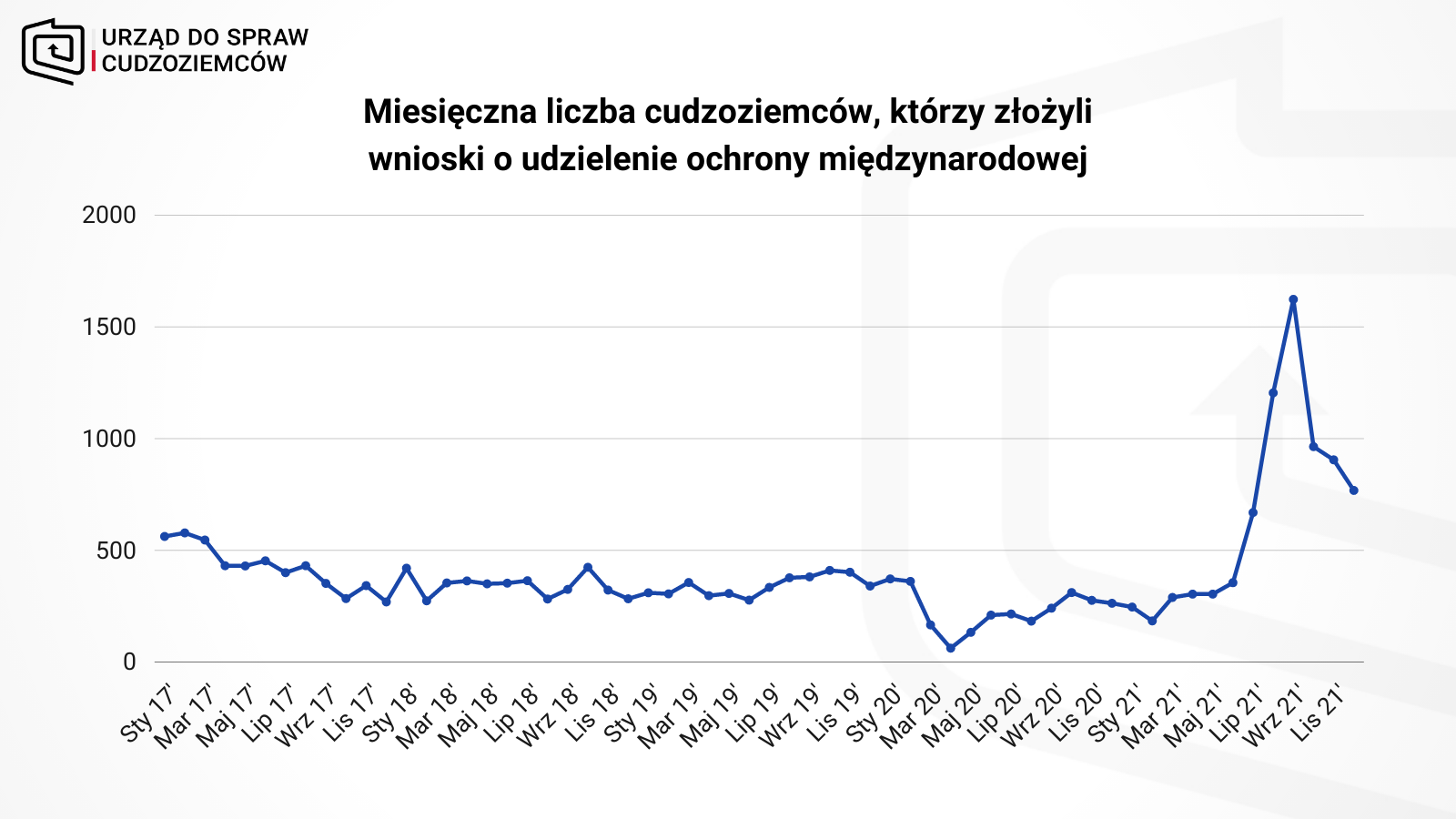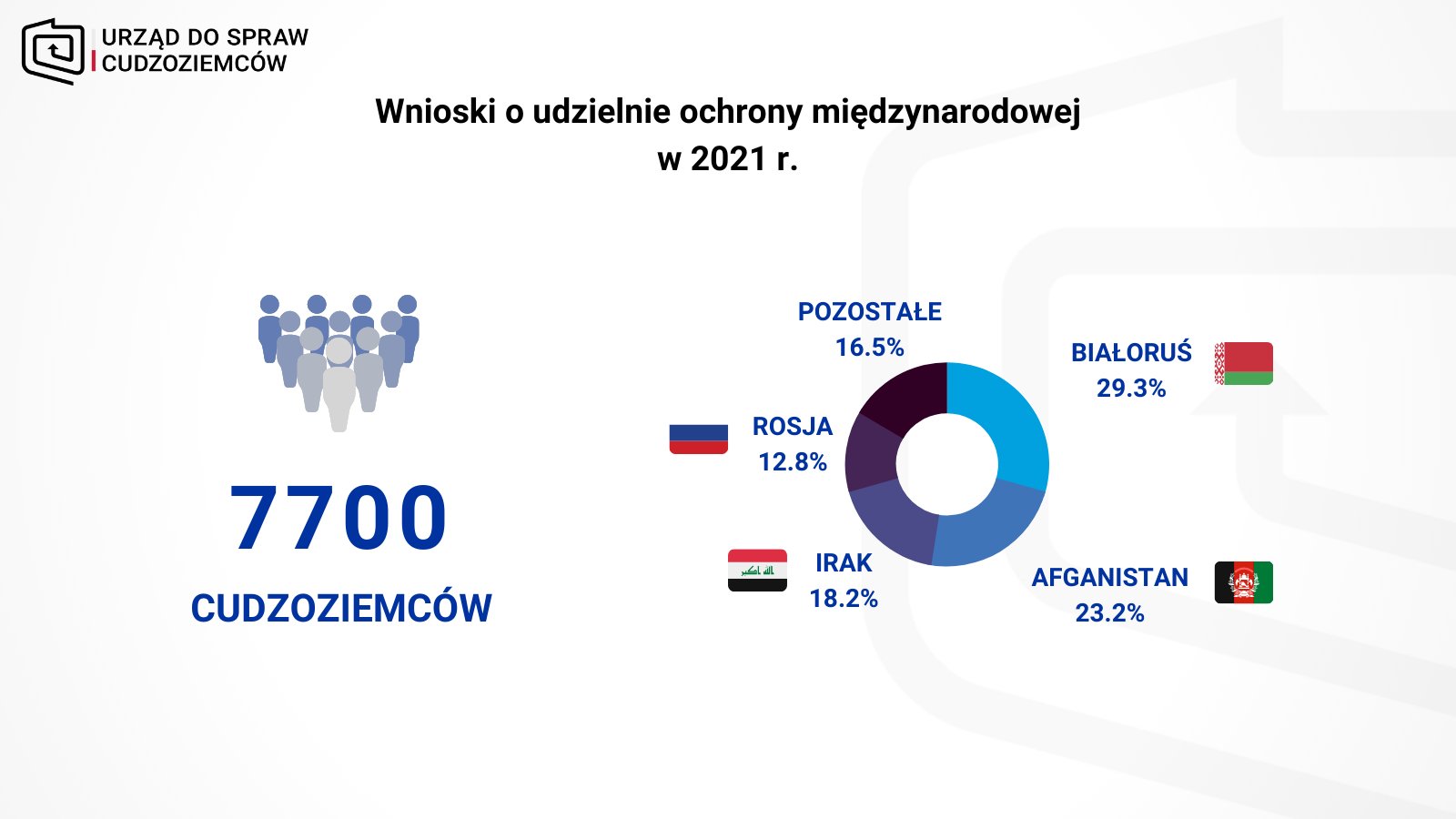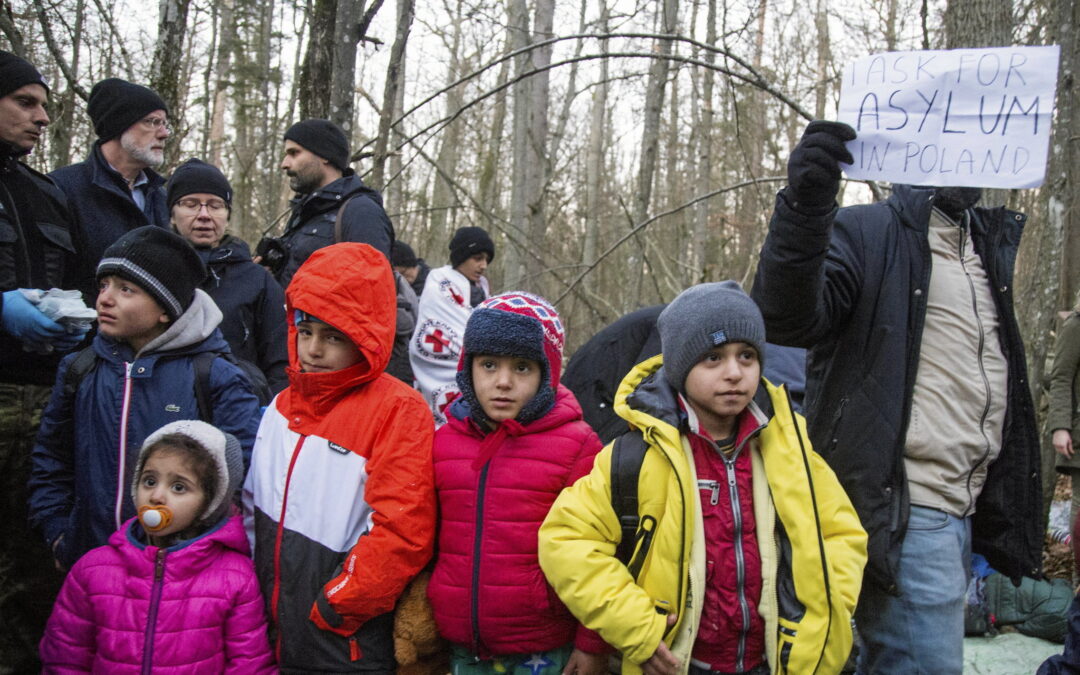Poland received 7,700 applications for international protection in 2021, an increase of 175% compared to the previous year and the highest annual figure since 2016.
The majority of applicants were citizens of Afghanistan – around 1,000 of whom were airlifted out of Kabul by Poland following the Taliban’s takeover – and of Belarus, Poland’s eastern neighbour that has been hit by upheaval and repression.

Monthly applications for international protection in Poland (source: Urząd do Spraw Cudzoziemców)
The 2,300 Belarusians seeking protection accounted for almost 30% of all applications to Poland made last year. They were followed by Afghans (1,800 applications), Iraqis (1,400) and citizens of Russia (1,000), according to data from the state Office for Foreigners.
Decisions on granting international protection were given in response to 4,700 applications in 2021. Under half of the applicants, 2,155, were found to meet the criteria.

Citizenship of those applying for international protect in Poland last year (source: Urząd do Spraw Cudzoziemców)
The majority of these, 1,150, were from Belarus. Some 95% of Belarusians were successful in their applications, as the effects of the political situation in their home country continued to be an important factor.
The 750 positive decisions issued to Afghans were mostly for people evacuated by Poland in August. All those who had remained in Poland were awarded international protection, but over 40% had their cases discontinued because they had already left the country.
A big increase in the monthly application numbers was visible in autumn. This was caused largely by citizens of Iraq, many of whom entered Poland across its eastern border amid a crisis orchestrated by the Belarusian regime of Alexander Lukashenko.
Some 440 Iraqis applied in September alone, but “the vast majority of people did not meet the conditions”. Of 300 decisions issued to Iraqi citizens in 2021, just 0.6% were positive and 86% were negative.
An application for international protection is defined by the EU as “a request made by a third-country national or a stateless person for protection from an EU Member State, who can be understood to seek refugee status or subsidiary protection status”. Such status may be awarded if applicants face persecution or a threat to their life or health in their country of origin.
Among those who applied in Poland last year, slightly over half were aged between 18 and 40, and one third (32%) were under 18. Men accounted for 60% of applications.
Negative decisions were received by 1,460 people in total – many of whom were citizens of Russia (645) and Iraq (270), while a total of more than 1,000 applications were discontinued.
In 2020, the number of applications received by Poland (2,800) was relatively low, as travel restrictions caused by the pandemic led to a drop of 32% compared to the figures from the previous two years.
The last years in which a higher number of applications was received than last were 2015 (11,000) and 2016 (12,000). However, unlike now, the majority of applications in those years came from Russian citizens from Chechyna and Ukrainians.
Main image credit: Agnieszka Sadowska/ Agencja Wyborcza.pl

Ben Koschalka is a translator, lecturer, and senior editor at Notes from Poland. Originally from Britain, he has lived in Kraków since 2005.




















